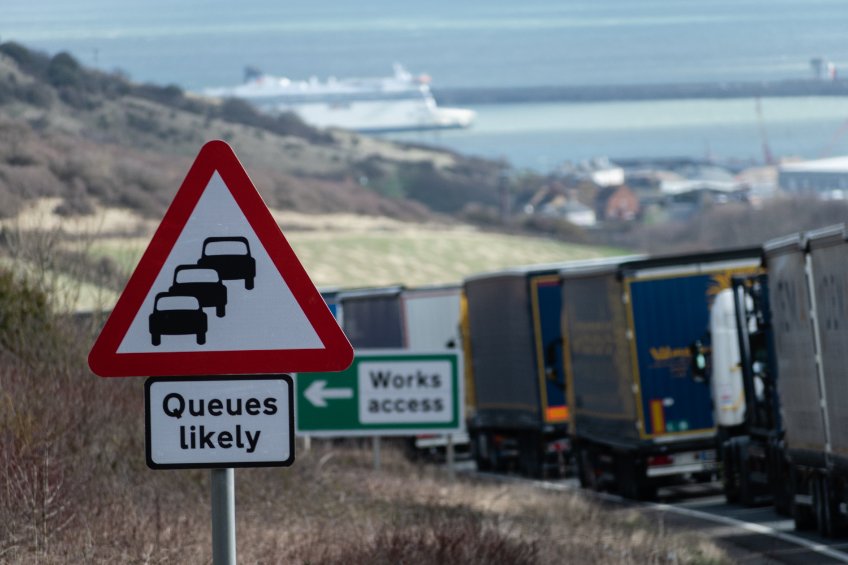
The government has been told to reverse its decision to slash funding for checks on illegal meat imports at the Port of Dover as another 3.4 tonnes of illegal meat was seized.
Dover District Council warned that a failure to act could expose the UK livestock industry to devastating disease, like African swine fever (ASF).
The 3.4 tonnes of illegal meat seized at Dover last week was the largest haul this year so far, taking the total seized since new ASF control measure came into force in 2022 to 85t.
The rules make it illegal for travellers to bring pork products weighing over 2kg into the country from the EU unless produced to the bloc's commercial standards.
The latest seizures came from a number of vehicle inspections completed by Dover Port Health Authority (DPHA) at the port.
They included 54 unmarked sheep carcasses from two vehicles from Romania, which had travelled for several days in unhygienic conditions and unsuitable packaging.
The meat had been transported without temperature controls, cross contaminating other food including pig parts, chicken, beef, and cheese items with dripping blood.
To stop the potential spread of disease, the illegal meat was removed from the food supply chain by DPHA at the point of entry at Dover, the council said.
Funding for these illegal meat checks at the port under ASF rules – which have resulted more than 85 tonnes of meat being seized so far, much of it pork from ASF-infected regions – is being slashed.
Defra told DPHA in December that it was cutting its budget from £3.2m to £1.2m in 2024/25, starting in April, and then to nothing in 2025/26.
DPHA says it needs £4 million to perform the work, which has also been extended to Coquelles, in France.
Lucy Manzano, DPHA’s Head of Port Health, said: “These seizures demonstrate just how vital the work is of the Dover Port Health Authority when it comes to protecting British supply chains and biosecurity.
“Despite our limited resources, our inspection teams are fully committed to fighting off the threat of ASF and other lethal diseases that threaten livestock."
